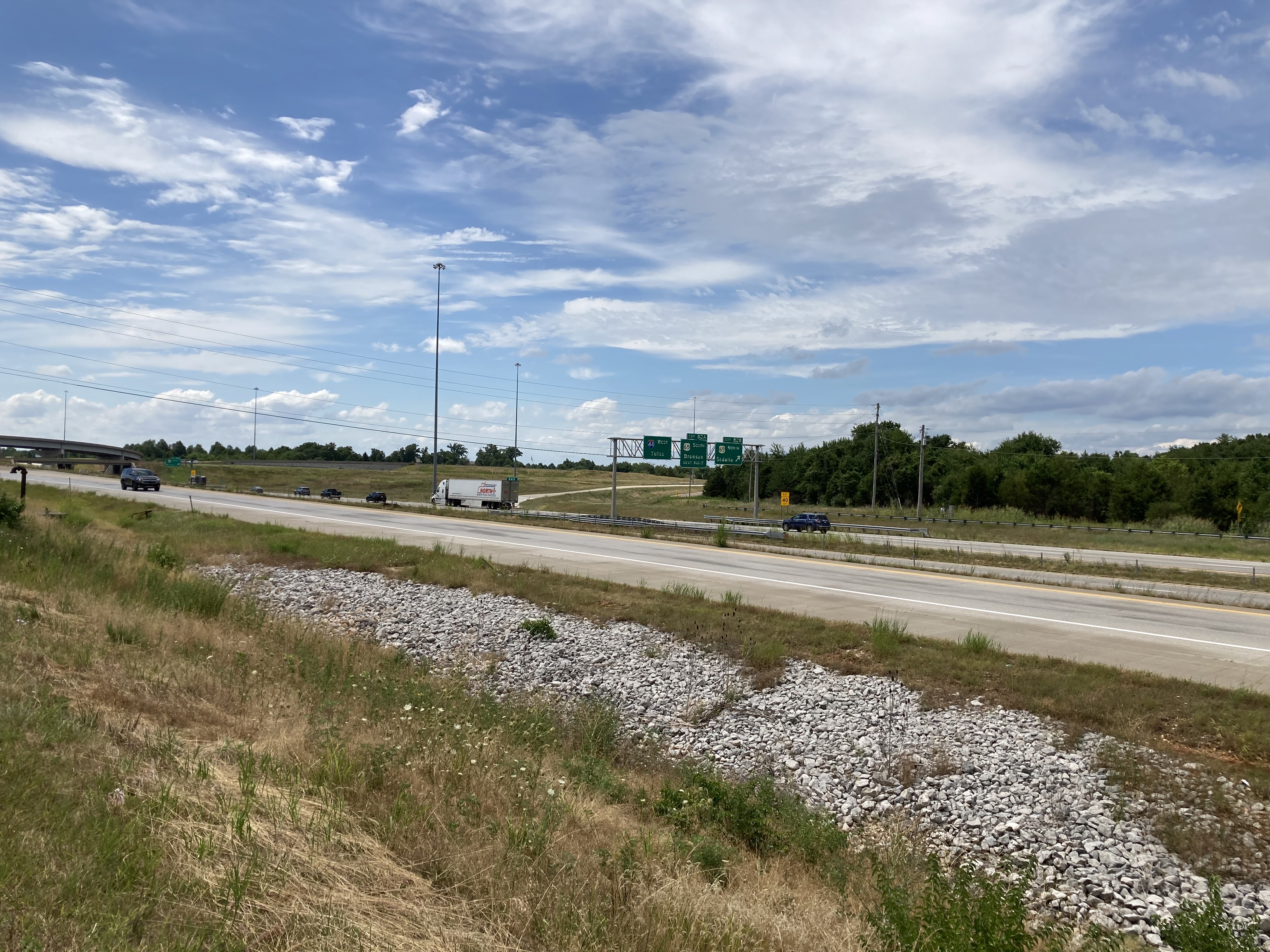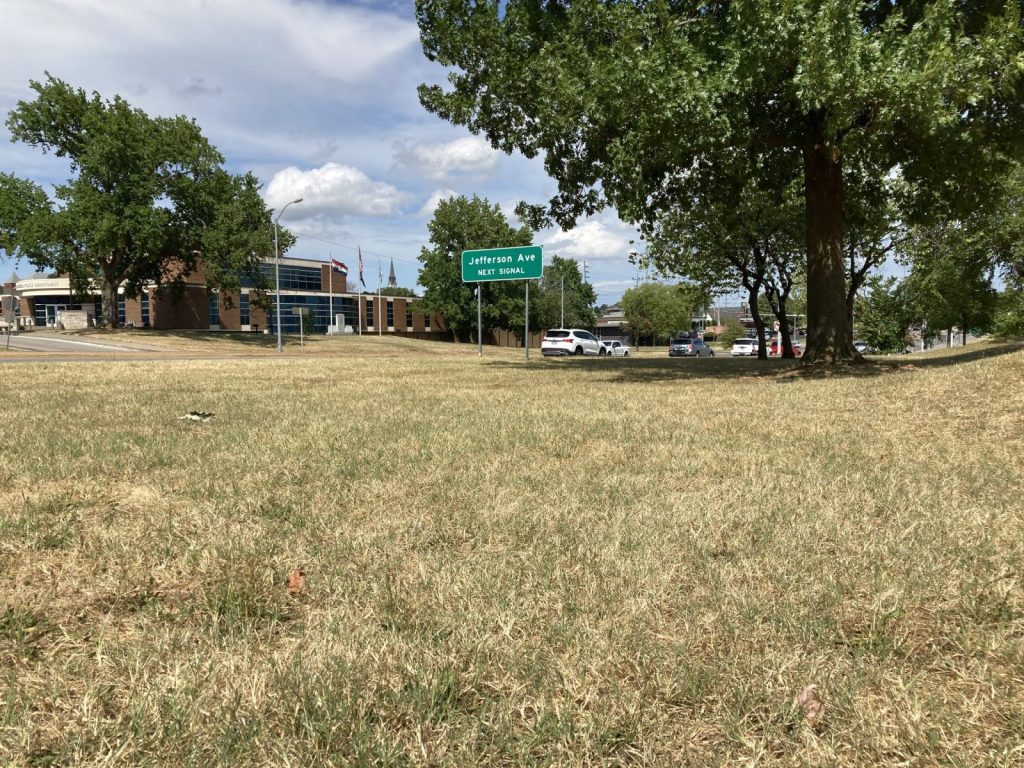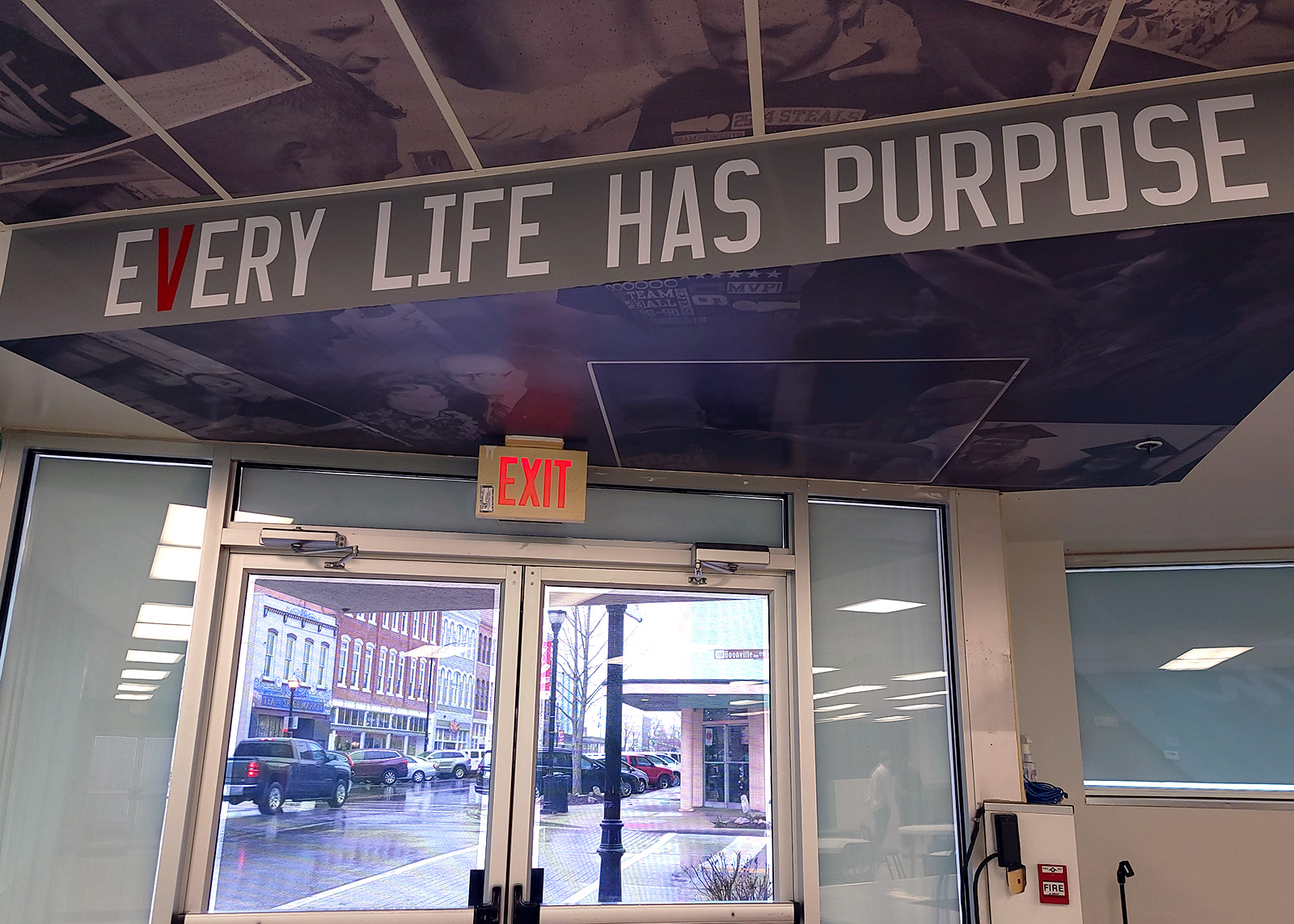Following the recent passage of House Bill 1606 — which will ban homeless people from camping or sleeping on state-owned lands — Springfield Police Chief Paul Williams explained how officers within his department will enforce the law.
The law was signed by Gov. Mike Parson in June and will become effective on January 1, 2023.
“The job of the police is to enforce whatever the legislature and the people put into place,” Williams said. “We don’t pick and choose what we’re going to enforce, what we’re not going to enforce.”
Williams said officers will enforce the camping ban exactly the same as they do Springfield’s homeless camp protocol.
The protocol, which was created in 2014, directs officers to give campers a minimum of 24 hours to leave the property. Williams said officers often work with advocates and property owners to extend that time up to 72 hours.
According to the protocol, officers are to also contact the staff at One Door, this community’s central point of entry for coordinated intake of shelterless people for assessment and referrals for housing and shelter services. One Door then sends staff and/or volunteers to the camp to offer services and help with moving.
Looking at the new law solely from a law enforcement and public safety perspective, Williams said he views the new law as a “positive” in that it will allow officers to remove campers from state-owned property, which is usually next to highways and dangerous areas for camping.

Asked how the new law will change Springfield Police Department’s response to illegal camping, Williams explained there have been times in the past when people camp on land owned by the Missouri Department of Transportation, for example. But MoDOT isn’t always interested in having police run them off.
“About a year and a half ago, we had people set up camp on the grassy area in between I-44 and Highway 65, right smack dab in the middle,” he said. “That is dangerous, absolutely dangerous to be camped in the middle of the right of way. And so when we contacted MoDOT, they go, ‘We can’t do anything about that. We’re not doing anything about that. It’s not our deal.’”
More recently, Williams said people camped on a grassy areas across from the police station on Chestnut Expressway. One grassy area is owned by the city and two other nearby areas are owned by the state.
“A couple of weeks ago, we had people decide they can put tents up there. They can’t. There’s the city land,” he said. “We took action on that. But then there’s a section that’s state (owned) and we kind of ran into the same position.”

The new law reads in part: “No person shall be permitted to use state-owned lands for unauthorized sleeping, camping or long-term shelter. Any violation shall be a Class C misdemeanor; however, the first offense shall be a warning with no citation.”
The law goes on to say that the Attorney General has “the power to bring a civil action to enjoin the political subdivision from failing to enforce any ordinances prohibiting public camping, sleeping, or obstruction of sidewalks.”
Williams wanted to make one thing clear: “Being homeless is not a crime. There are things that those who are homeless do — they commit crimes or there are people that prey on the homeless. I think they’re victims as much as they are suspects.
“We will continue to follow our protocol,” he added. “Our homeless protocol works very well. We work to give people time and connect them with services and let those who want help get help.”
Service providers worry Springfield will lose funding
While Williams sees some positives with the new law, those who provide services to help Springfield’s unsheltered community worry they will soon lose state funding.
In addition to making it a misdemeanor crime to sleep or camp on state-owned property, the bill says that political subdivisions, primarily municipalities, must maintain a per-capita homelessness rate at or below the state average or enforce ordinances that comply with the law, or could face a loss in state funding or civil action by the Attorney General.
According to the Department of Housing and Urban Development (HUD), Missouri’s per capita rate of homelessness in 2021 was .000834. The per capita rate of homelessness for the Springfield/Greene, Christian and Webster County Continuum of Care was .00134 — well above the state’s.
The National Coalition for Housing Justice (NCHJ) has expressed concern over the ramifications of the bill, particularly for the urban communities in the state.
“It is highly likely that one year after this law is initiated communities such as St. Louis, Kansas City, Springfield, Jefferson City, Columbia and even Branson will be under threat to lose their state funding for housing/homelessness because they will not be able to show any progress on reducing the numbers of homeless people,” a statement from the National Coalition for the Homeless reads.
Michelle Garand is vice president of Affordable Housing and Homeless Prevention with Community Partnership of the Ozarks. She pointed out that the language in the bill is “not specific in any way,” and it’s not clear what is meant by “state funding.”
Folks are wondering if that could possibly include federal funds that pass through the state, Garand said.
“That could mean a lot of money. We don’t know where it ends,” she said. “If it’s for any homeless services, does that mean just housing services or does it mean mental health services for the homeless? There’s a lot. The scope is pretty wide.
“I think everyone, including our legislators, are really trying to figure out what types of impacts this would have, especially to our municipality,” Garand said. “We are already well above the state’s per capita rate of homelessness, and we’re definitely in jeopardy of losing funds.”
Bob Atchley is a senior planner with the Grants Administration and Housing Team of the Planning and Development Department and also serves as an executive board member with the Ozarks Alliance to End Homelessness (OAEH).
In an email response, Atchley said the OAEH has been working directly with Rep. Crystal Quade and her staff to try to determine which state funding sources will be affected by the new law.
“Representative Quade is in the process of sending a request to the Governor’s Office, asking for an exact determination as to the funding loses and the source of those loses for both the City of Springfield and the nonprofit homeless service providers that are members of the OAEH,” Atchley wrote. “Therefore, at this time, any dollar figure that I provide regarding potential funding source losses, would be speculation on my part.”
Read more about this new law in this previous Daily Citizen story.




